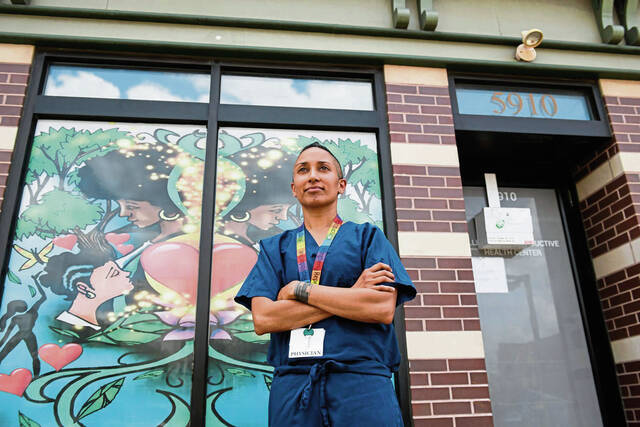I see that we have a collective blind spot.
We don’t understand mental health. Our media talks and writes about elevated rates of anxiety during Covid, depression and substance abuse during mid-life, and suicidality among adolescents and veterans. Mental health professionals are rarely consulted.
We have three current crises that illustrate what we are not seeing: Donald Trump, guns and groups. From my perspective, this lack of understanding could be lethal.
The first centers on Trump. The unfolding narrative goes like this: Loyalists conveyed that he lost the election. He knew he lost, and therefore he concocted The “Big Lie,” the idea that the election of Joe Biden was fraudulent. Many fellow Republicans have repeated it and are running campaigns following from it.
This hypothesis assumes Trump received the facts. However, some people don’t register them, even if they hear them. Thus Trump habitually changes the subject when confronted with facts. These people have an idea already formed about a subject. Often, it is hatched to protect a delicate area of self-esteem. That idea — such as “I am a winner,” or “I am powerful” — is immune to contradictory evidence. William Barr referred to this thinking style as “detached from reality.” Psychiatrists describe it, when organized, as delusional.
We see patients routinely who demonstrate this characteristic. Sometimes it is accompanied by what we call a personality disorder, which may include superstitions, black-and-white thinking, lying, sensitivity to abandonment and grandiosity that barely covers inadequacy. This way of thinking defies common sense. How can a person be capable of sophisticated reasoning about some subjects, but seem in denial about others? What matters is whether the subject encroaches on personal vulnerability. These patients tend to be fragile. Treatment requires intensive psychotherapy and medication, when it’s effective. Probably more such people go undetected — living in isolation — than are treated in a psychiatrist’s office.
Which brings me to access to mental health care. I find it misleading for some people to suggest that gun law reform should be secondary to mental health treatment. For one, we don’t have a comprehensive public mental health system, the kind that would capture ailing young adults who pull the trigger. Second, these young men usually don’t have a neat DSM-V diagnosis, meaning they aren’t frankly psychotic or vegetating. They are typically odd, alienated from mainstream groups, violent or threatening, and incrementally desperate. Few of them have presented for mental health treatment, and the ones who have usually don’t stick.
We are going to need a different approach. The most direct way to reach struggling kids is to identify them in our schools and embed treatment resources there. We have already seen resistance from some school boards to offering treatment in school settings. As if addressing emotional pain will cause a pathological condition, reminiscent of the idea that teaching about sexuality will cause girls to become pregnant. Confronting potential problems doesn’t cause conditions; ignorance about them encourages children to suffer silently or experiment unwisely.
Yet the most frightening mental health issue plaguing our country is a group condition spreading among a contingent of our populace. You won’t find it in DSM-V. The people who have it may in fact feel better for having it. It provides a sense of belonging, perhaps one people didn’t feel in their families of origin. They feel protected by their leader who promises simple solutions. And they feel certain about where the threat lies — always outside, often embodied in people who look and sound different from them. These people aren’t independent thinkers when immersed in their group. Rather, they are followers, their worries heightened by genuine existential concerns. They are willing to behave violently to maintain their group, often aimed at outsiders who don’t fit.
This group condition has been called cultism and authoritarianism. No matter the name, it is contagious and difficult to treat. There is no pill or vaccine to eradicate it. Methods of attacking it include public exposure, punishment for crime, defeating it at the polls, or at worst, crushing it with the National Guard. No one wants to live through the latter nightmare. But we should be sober about the limits of persuasion. Clinical experience has taught me otherwise.
What will work is prevention. Some Americans have been left behind by elites who have benefited from education and technological advancement. We need to correct that injustice by offering opportunities to everyone. The pandemic should give us the chance to improve public education. Critical thinking needs greater emphasis. Children need to learn about the lure of misinformation and the damaging influence of corrupt leaders. And children who are struggling emotionally need to be identified and offered treatment in school. If not mentally healthy, kids may become dangerous, either with a gun or by being drawn into a group that undermines our democracy.
Andrew Smolar, M.D., is a psychiatrist, psychoanalyst and clinical associate professor of psychiatry at the Temple University School of Medicine.








